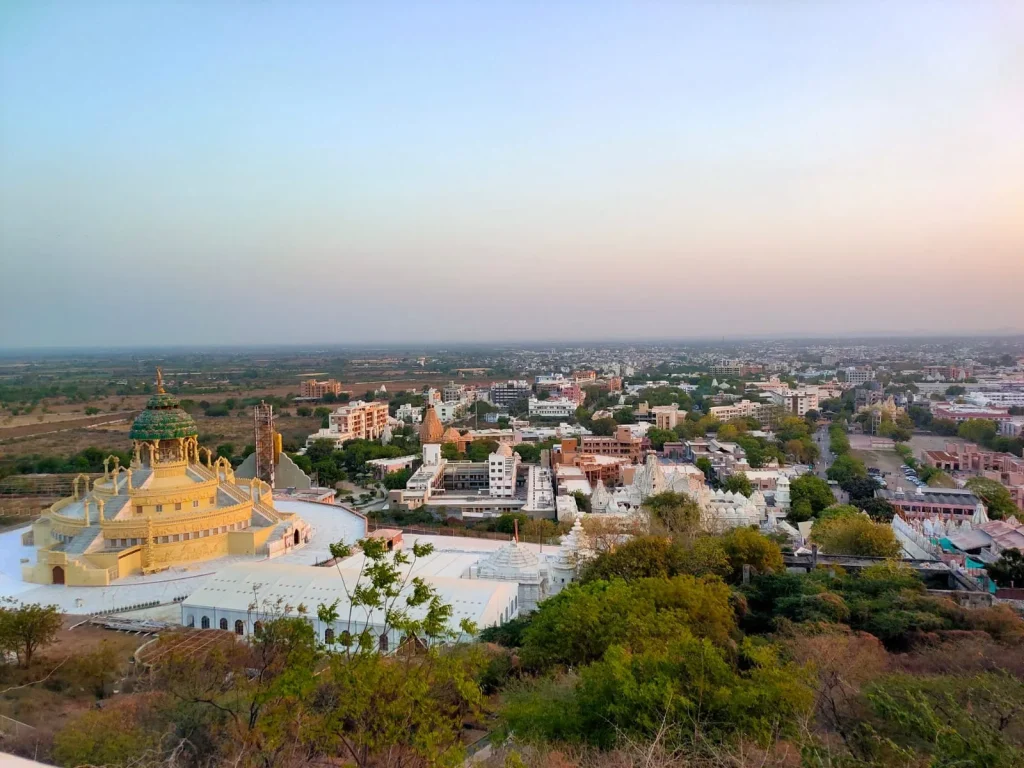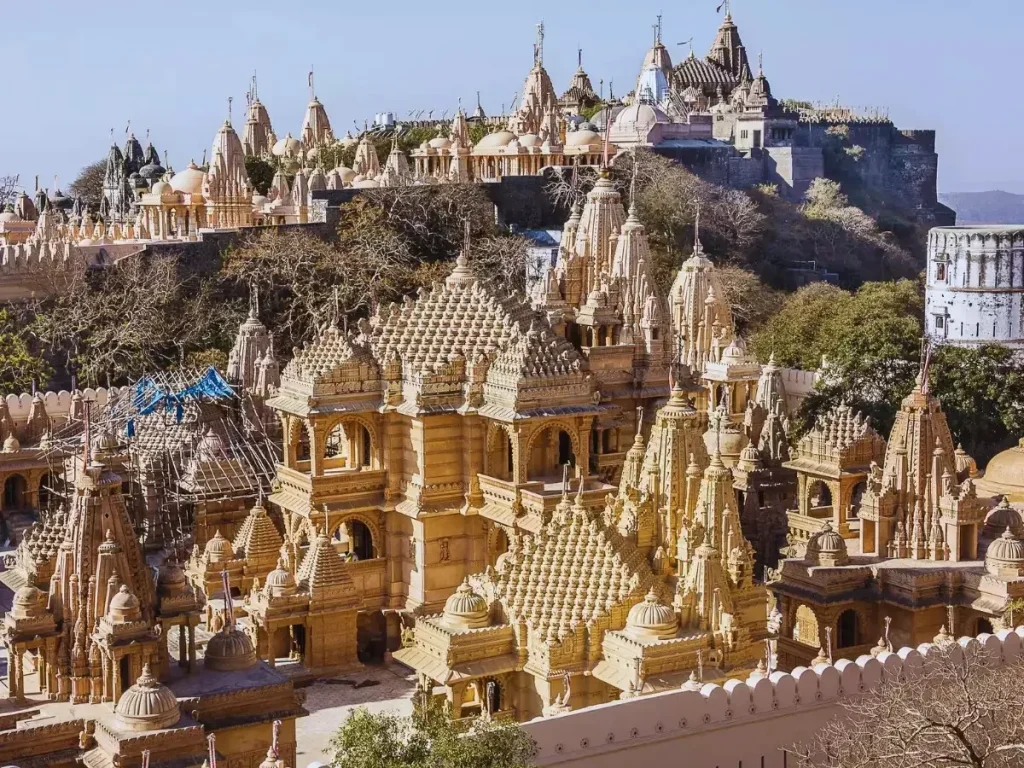Palitana, a small city in Gujarat’s Bhavnagar district, has made history by becoming the world’s first city to officially ban non-vegetarian food. Known for being a major Jain pilgrimage site, the ban was implemented to honor the Jain community’s religious principles, especially their commitment to non-violence and compassion for all living beings. The move followed a protest by over 200 Jain monks, who called for the closure of about 250 butcher shops in the city. In response, the government passed a law banning the killing of animals for food and the sale of meat and eggs.

A Commitment to Non-Violence
Rooted in the Jain philosophy of non-violence (ahimsa), the ban reflects the city’s deep respect for its community’s beliefs. It promotes a vegetarian lifestyle as a core value, encouraging compassion and ethical living for all residents and visitors.

Rise of Vegetarian Cuisine
Since the ban, Palitana has witnessed a surge in vegetarian restaurants, offering a variety of dishes to meet the growing demand. These establishments provide a wide array of delicious, ethical food, contributing to a unique vegetarian culinary culture that aligns with the city’s religious and ethical values.
A Pilgrimage Hub
Palitana is home to the renowned Shatrunjaya Hill temples, a significant pilgrimage destination for Jains. The city’s focus on non-violence has helped preserve its spiritual sanctity, attracting both pilgrims and tourists from around the world.

Vegetarian-Friendly Tourism
The ban has also boosted vegetarian-friendly tourism, with numerous restaurants offering both traditional and modern vegetarian dishes. Palitana has become a sanctuary for those wanting to experience a meat-free lifestyle while enjoying flavorful, ethical cuisine.

Mixed Reactions
While the Jain community has largely supported the ban, it has faced criticism from some who oppose restrictions on dietary choices. Despite the mixed reactions, Palitana stands as a prime example of a city embracing its religious values while cultivating a distinct, vibrant food culture.
